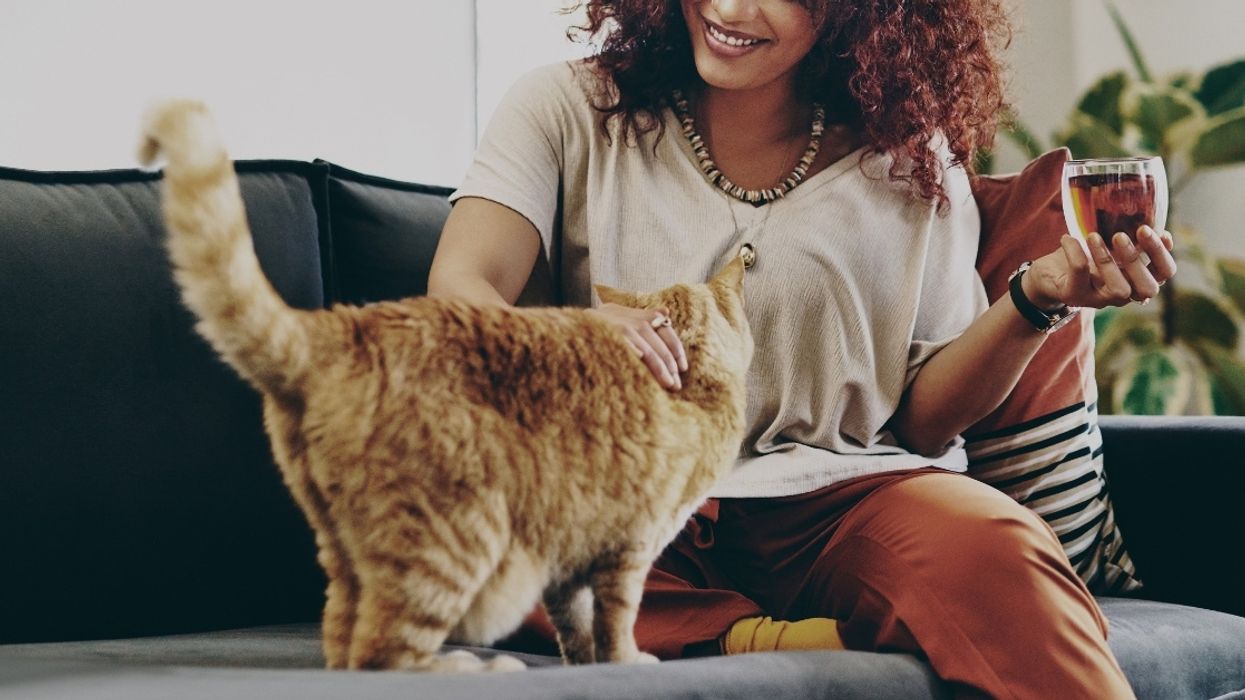Cat owners fall into five categories in terms of attitudes to their pets' roaming and hunting, according to a new study.
Researchers surveyed UK cat owners and found they ranged from “conscientious caretakers" concerned about cats' impact on wildlife and who feel some responsibility, to “freedom defenders" who opposed restrictions on cat behavior altogether.
“Concerned protectors" focused on cat safety, “tolerant guardians" disliked their cats hunting but tended to accept it, and “laissez-faire landlords" were largely unaware of any issues around cats roaming and hunting.
Conservation organizations have long been concerned about the number of animals caught by the UK's large population of domestic cats.
Most pet cats kill very few wild animals, if any, but with a population of around 10 million cats, the numbers of birds, small mammals and reptiles taken can accumulate.
Apart from their role as “mousers", most owners find the dead animals brought home an unpleasant reminder of their pet's wilder side.
Addressing this problem has been difficult because of disagreements between people prioritizing cat welfare and those focusing on wildlife conservation.
Researchers at the University of Exeter are using the “Cats, Cat Owners and Wildlife" project to find a conservation win-win, by identifying ways of owners managing their cats that benefit the felines as well as reducing wildlife killing.
The study included 56 cat owners, some from rural parts of the UK, including the south-west of England, and some from Bristol and Manchester.
This research is a step towards understanding how cat owners view their cats and how best to manage them.
They say their findings demonstrate the need for diverse management strategies that reflect the differing perspectives of cat owners.
“Although we found a range of views, most UK cat owners valued outdoor access for their cats and opposed the idea of keeping them inside to prevent hunting," said lead author Dr. Sarah Crowley.
“Cat confinement policies are therefore unlikely to find support among owners in the UK."
“However, only one of the owner types viewed hunting as a positive, suggesting the rest might be interested in reducing it by some means."
“To be most effective, efforts to reduce hunting must be compatible with owners' diverse circumstances."
Suggested measures to reduce hunting success include fitting cats with brightly colored “BirdsBeSafe" collar covers, and many owners also fit their cats with bells.
The research team are now examining the effectiveness of these and other new measures and how owners feel about them, with a view to offering different solutions.
“This latest research we have funded reveals the incredibly diverse perspectives amongst cat owners in regard to their pets' hunting behavior," said Tom Streeter, chairman of bird charity SongBird Survival.
“If nature is to 'win' and endangered species thrive, a pragmatic approach is needed whereby cat owners' views are considered as part of wider conservation strategies."
“The study highlights the urgent need for cat owners and conservationists to work together to find tailored solutions that are cheap, easy to implement, and have a positive effect on wildlife and bird populations across the UK."
The paper is published in the journal Frontiers in Ecology and the Environment.








 Columbia Heights Public Schools
Columbia Heights Public Schools





 Chip Somodevilla/Getty Images
Chip Somodevilla/Getty Images
 Gym Weights GIF by Guava Juice
Gym Weights GIF by Guava Juice 
 Man With A Plan
Man With A Plan  Happy Feeling Good GIF by BEARISH
Happy Feeling Good GIF by BEARISH  Roadside Assistance Flat Tire GIF
Roadside Assistance Flat Tire GIF 
 u/Murky_Chemical891/Reddit
u/Murky_Chemical891/Reddit u/amazinglyshook/Reddit
u/amazinglyshook/Reddit u/OriginalChildBomb/Reddit
u/OriginalChildBomb/Reddit u/Autopsyyturvy/Reddit
u/Autopsyyturvy/Reddit u/_iridessence_/Reddit
u/_iridessence_/Reddit u/HallWild5495/Reddit
u/HallWild5495/Reddit u/fandomnightmare/Reddit
u/fandomnightmare/Reddit  u/SpecificBeyond2282/Reddit
u/SpecificBeyond2282/Reddit u/DvorakThorax/Reddit
u/DvorakThorax/Reddit u/SeaRespond9836/Reddit
u/SeaRespond9836/Reddit u/According-Garden-129/Reddit
u/According-Garden-129/Reddit
 @its.avelyn/TikTok
@its.avelyn/TikTok @its.avelyn/TikTok
@its.avelyn/TikTok @its.avelyn/TikTok
@its.avelyn/TikTok @its.avelyn/TikTok
@its.avelyn/TikTok @its.avelyn/TikTok
@its.avelyn/TikTok @its.avelyn/TikTok
@its.avelyn/TikTok @its.avelyn/TikTok
@its.avelyn/TikTok @its.avelyn/TikTok
@its.avelyn/TikTok @its.avelyn/TikTok
@its.avelyn/TikTok @its.avelyn/TikTok
@its.avelyn/TikTok